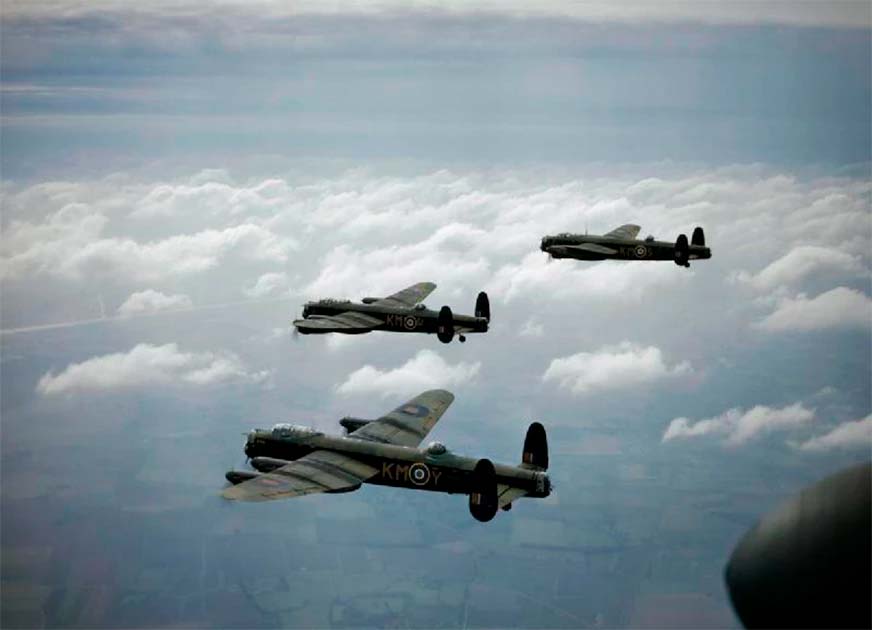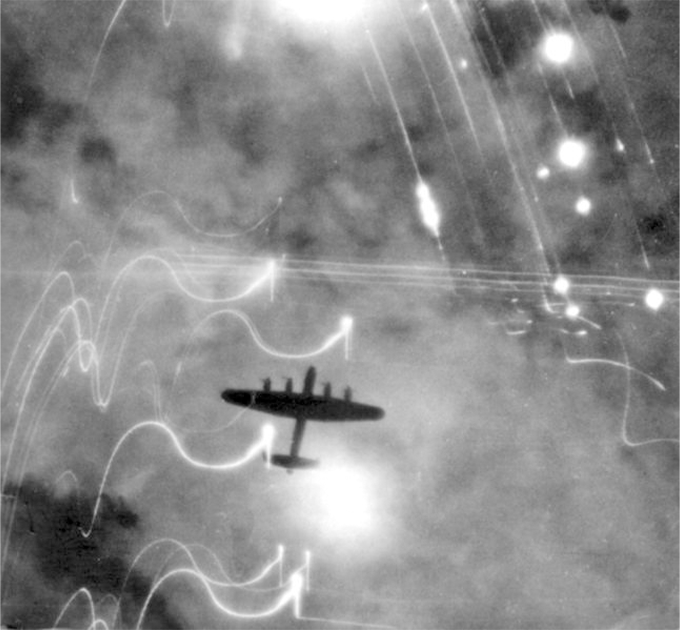As the tide of WW2 fortunes turned in favor of the Allies in 1943, a series of bombing raids was carried out by the British Royal Air Force and the United States Army Air Forces against the German city of Hamburg. The operation, which took place in July and August of that year, was intended to disrupt German war production and weaken the morale of the civilian population.
However, the bombing raids did far more than disrupt production and damage morale. The repeated attacks caused widespread destruction and death, resulting in one of the deadliest bombing campaigns of the war.
The Allies’ defense of such an attack was that it was necessary, and proportionate, and that the targets were legitimate. However it was clear that the Allies knew exactly how much wanton destruction they were about to cause in their naming of the raids: they called it Operation Gomorrah, after the Biblical city destroyed by God.
The impact of Operation Gomorrah on the course of the war and the debate over the use of strategic bombing remains a controversial and significant chapter in the history of WW2. Here’s what happened during the decimation of Hamburg.
What Was Operation Gomorrah?
There’s an old saying that history is written by the victors. While this isn’t always true, in the case of WW2 it certainly is. Much has been made of the atrocities carried out by the Third Reich, and rightly so. However, this doesn’t mean that the actions of the Allies were without controversy.

Both sides carried out sustained campaigns of strategic bombing during the war. Over the years Germany’s bombing of Britain, commonly referred to as the Blitz, and how England put up a valiant fight, the Battle of Britain, has been widely reported. Much less has been written on how the Allies did the same thing to Germany.
This leads us to Operation Gomorrah, a massive bombing campaign carried out by the Royal Air Force and the United States Army Air Force against Hamburg from July 24 to August 3, 1943. The operation created one of the largest firestorms raised by the Allies during WW2, killing an estimated 37,000 civilians and wounded more than 180,000. Ultimately, it destroyed pretty much the entire city.
It was an attack of almost biblical proportions, hence its name. Gomorrah was one of the two Canaanite cities (of Sodom and Gomorrah fame) that God wiped out in the Book of Genesis of the Bible: “Then the Lord rained brimstone and fire on Sodom and Gomorrah, from the Lord out of the heavens.” This was an attack aimed at causing as much destruction as possible, in as short a time as possible.
Hamburg was chosen for a variety of reasons. The allies had learned from the Blitz that when attacking civilian targets, incendiaries were more effective than traditional high explosive bombs and it was deemed Hamburg was particularly susceptible to incendiary munitions.
- The Coventry Conspiracy: Did Churchill Let a British City Burn?
- The Nazi V-3 Cannon: Could this “Vengeance” Weapon Have Destroyed London?
Hamburg also contained a large number of targets that supported the Nazi war effort, like factories. It was also relatively easy for navigators to find, a horrifying thought given what that suggests about the arbitrary nature of its selection.
The operation was the result of careful research. Both the RAF and the USAAF worked hard to discover the optimum mix of high explosives and incendiaries to cause maximum damage. It also took patience. They researched and then waited for, the perfect weather.
In the weeks preceding Operation Gomorrah Hamburg had experienced a dry spell. This meant the whole city was like kindling. The unusually warm weather and dry conditions meant that when the Allies unleashed their bombs, an inferno ensued.
On the worst night, July 27, the bombing led to an unprecedented firestorm. The city experienced winds of 170 miles per hour (270 km/h) and temperatures at the street level reached at least 1400 degrees Fahrenheit (760 degrees centigrade).
A whirling vortex of super-heated air reached 460 meters (1510 ft) into the air. This raging torrent of fire sucked up all the oxygen it could get, meaning those hiding in shelters and basements were asphyxiated as their oxygen supply was replaced with carbon monoxide.
Why Was it Authorized?
This all raises the question if the Allies were supposed to be the “good guys”, why was such an operation ever greenlit? Well, war is messy, expensive, and political. As such, so were the reasons behind the operation.
As the war dragged on both sides were increasingly desperate to bring it to as swift an end as possible. This gave rise to the ominous idea of necessary evils.
Previously, the Allies had tried their best to avoid civilian targets when bombing Germany. But the fact was Germany wasn’t extending the same courtesy to England, and the Allies’ “targeted bombing” campaigns had been relatively unsuccessful.
In 1941 the English war cabinet received the Butt Report. This report highlighted that only a third of crews who claimed to have reached their targets had even gotten within five miles of them. As a result of this, bombing operations were opened up to criticism as a waste of precious resources.
- Operation Bernhard: Nazi Economic Blitzkrieg and a ton of Fake Money
- The Mosquito: Britain’s Accidental WW2 Wonder?
This led to a dark turn in thinking for both the heads of the RAF and USAF. If their bombers were missing military targets and causing civilian casualties, why not just target the civilians? If enough civilians were killed or injured, it would weaken German morale and undermine support for the war effort.
This made Hamburg the perfect target. It was a densely populated area and an industrial center for Germany, producing weapons, ammunition, and other essential supplies. A devastating bombing campaign against Hamburg would not just help cripple the German war machine, it could damage enemy morale at the same time.
Objective Achieved…
As mentioned above operation, Gomorrah achieved its primary goal of causing mass death and destruction. Deaths were in the tens of thousands and at least 12,000 buildings, including 60% of homes, factories, and public buildings were destroyed.

Targets important to the war effort were heavily hit. Most of the city’s factories were destroyed and the city’s port, the Port of Hamburg, was heavily damaged, disrupting German war production and supply lines.
The operation also had the desired psychological impact (at least initially). The sheer level of destruction and loss of life caused widespread shock and grief among the German population. In many ways, it was a turning point for the Allied war effort. While the Nazis initially used it for propaganda, accusing the Allies of war crimes, privately they were shaken.
It didn’t come without repercussions, however. The bombing was widely criticized by international observers who rightly condemned the targeting of civilian populations. There was a certain feeling that the allies had brought themselves down to the Nazis’ level.
This leads us to the final question. Was Operation Gomorrah justified? For that matter was the firebombing of Dresden? Or the nuclear destruction of both Hiroshima and Nagasaki in 1945? This is a complicated question that is still the source of much debate.
On the one hand, the Germans had committed to total war and the Allies were desperate for anything that could give them the upper hand. The war in general, as well as the Holocaust the Germans were carrying out, was causing untold death and destruction. Is it right to kill a few thousand people to save the lives of millions?
This would be a convincing argument if Gomorrah had achieved its goal. But just as the Blitz had helped stoke patriotic fervor in the UK, operation Gomorrah did the same for the Germans. Rather than cause a collapse in morale it revealed the resilience of the German people and only untied them further. Even worse, it let them think they had the moral high ground.
Top Image: Ruined by bombs and gutted by fire: a lifeless residential district of Hamburg during Operation Gomorrah. Source: Dowd J / Public Domain .